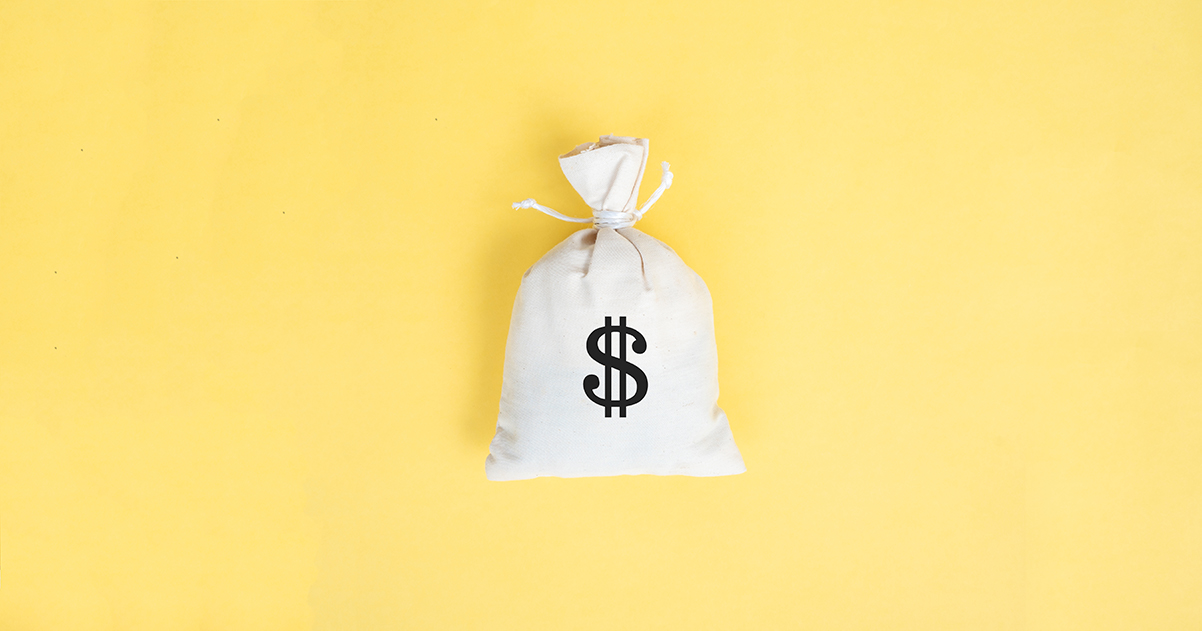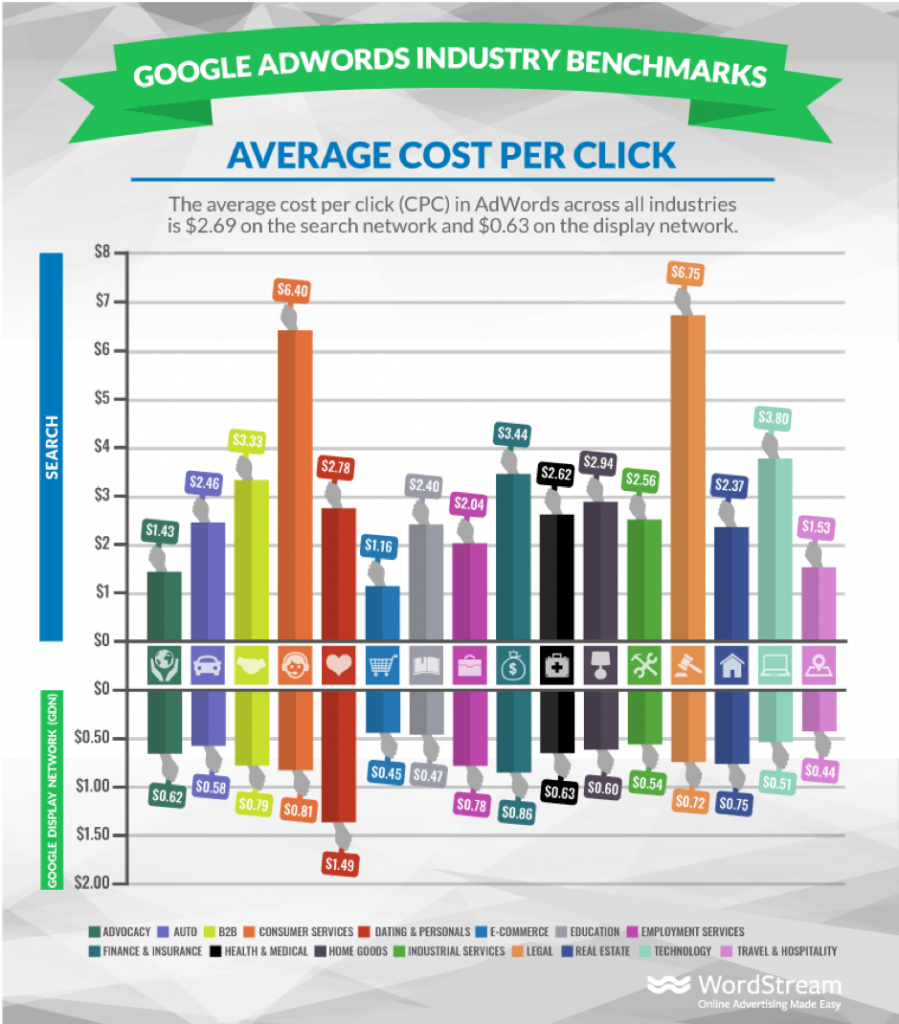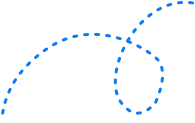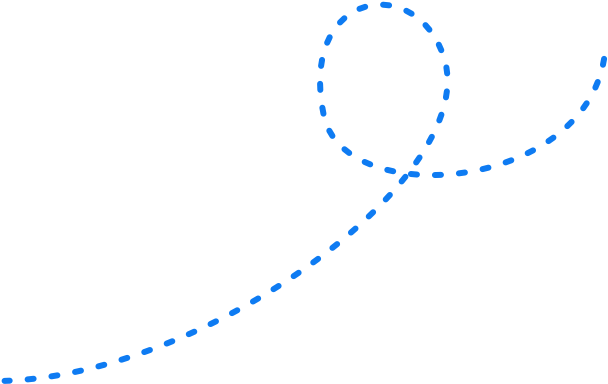What Is CPC? 


Cost per click (CPC) is the price you pay for each click in your pay-per-click advertising campaigns. It’s also a key digital marketing metric you should measure if you managing ads as part of an online advertising campaign.
In this article, we’ll explore:
- What it is
- Why it’s important
- Key metrics that define a ‘good’ CPC
- Advanced tips for lowering cost
Defining CPC
Cost per click, or CPC, is the price you pay for an individual click on one of your pay-per-click (PPC) ads.
Pay-per-click campaigns can be run on digital platforms such as Google Ads (previously known as Google AdWords), Bing Ads and Facebook.
Here’s how it works.
You only pay when people click on your ad.
Remember – CPC is the price you pay to get a potential customer to visit your website in the first place. It is not the cost per conversion.
How is CPC determined?
There are lots of factors that go into calculating the cost per click. It varies depending on which ad platform you’re using. Here, we’ll use the most popular platform to explain – Google Ads.
In Google Ads, the formula for cost per click is:
Competitor AdRank / Your Quality Score + .01 = Actual CPC.
Sounds complicated?
Let’s break it down.
Because of how Adwords auction works, your actual CPC is influenced by three things:
- Your ad rank
- Maximum Bid
- Quality Score
The maximum bid is the most you are willing to spend per click for each keyword. At the end of the day, your CPC will always be the same or less than your maximum bid.
The Quality Score is the Google Ads rating system. It’s a score ranging from 1 to 10 that ranks your ad based on:
- Landing page experience
- Relevance to keywords
- Quality of the ad
- Historic click through rate (CTR)
Just to confuse things, the CPC you pay is also influenced by your closest competitor’s ad rank, maximum bid and Quality Score.
Why is CPC important?
CPC is important for two reasons:
- As a key metric you need to measure if you want to get the best out of your PPC campaigns.
- As a benchmark you can track to see how much you should be bidding for a keyword.
Let’s look at these in more detail.
CPC as a metric
CPC can give you the data you need to better optimise your Adwords campaigns for a better return on investment (ROI).
Think about it.
Pay-per-click ads are proven to accelerate growth for many businesses. Your ROI is determined by the cost per click AND the quality of traffic from those clicks. In other words, how likely those clicks will turn into conversions.
So, if you can make your ads more effective and drive your CPC down, you can generate an eye-watering ROI.
CPC as a benchmark
The average CPC varies depending on your industry. So, by understanding the CPC benchmark for your industry, you can make sure you’re not overspending or underspending on your paid ad campaigns.
Studies suggest an overall average of $2.69 per click across all industries.

Image Credit: wordstream.com
More competitive industries and those with higher-priced conversions tend to go above this. In the chart above, it’s obvious that the legal and consumer services sectors are soaring above other industries when it comes to CPC.
Both spend on average $6+ per click.
Most other sectors come in around the $3 range.
That’s because advertisers are only willing to pay an amount that still gives them an opportunity to make a profit.
So, when setting your CPC benchmark, you need to understand how your industry will affect your budget.
Then, take a look at the average CPC for your sector and see whether you are overspending or underspending on your campaigns.
What makes a good CPC?
That’s where the benchmark comes in. Cost per click should never be considered by itself. You might be striving for a lower CPC, but some keywords with a high CPC will produce a better return on investment.
How?
Because they drive better value.
Take the legal industry with its $6 average cost per click.
The people who click through to a legal services website are more likely to pay more for their services, meaning the $6 CPC isn’t a waste of money. So long as you’re bringing in the right quality of traffic who are ready to convert, you can still generate a very healthy ROI.
In other words, cost per click is all relative.
It all depends on your business, product or service, and customers.
If you’re making a good profit from each conversion, the high cost per click doesn’t really matter.
Pro tips for a lower CPC
How do you lower the price you’re paying for each click but still sustain the quality of traffic and maximise conversions?
Focus your efforts on improving your Quality Score, as this can significantly lower your CPC.
How to improve your Quality Score:
- Increase your Click-Through Rate – Click-through rate (CTR) measures how often your ad is clicked on in the search results. The more compelling your ad and the more relevant it is to the search query, the higher chance it will be clicked.
- Improve your Keyword Relevance – Make sure your ad text is highly relevant to the keywords you are bidding on. Include the keywords in the headline and ad text. This tends to result in higher Quality Scores and CTRs.
- Ad & Landing Page Quality – Make sure your landing page and ads are high quality and relevant. It’s critical your landing page is aligned with your ad, so users get what they’re searching for.
Summary
Understanding your CPC is an absolute must if you want to squeeze the best from your PPC campaigns.
While many advertisers get hung up on CPC, it’s important to remember that it’s part of a bigger picture.
CPC is only one metric you should be measuring to maximise your Adwords ROI. Cost Per Acquisition (CPA) is way more important in the long run.









